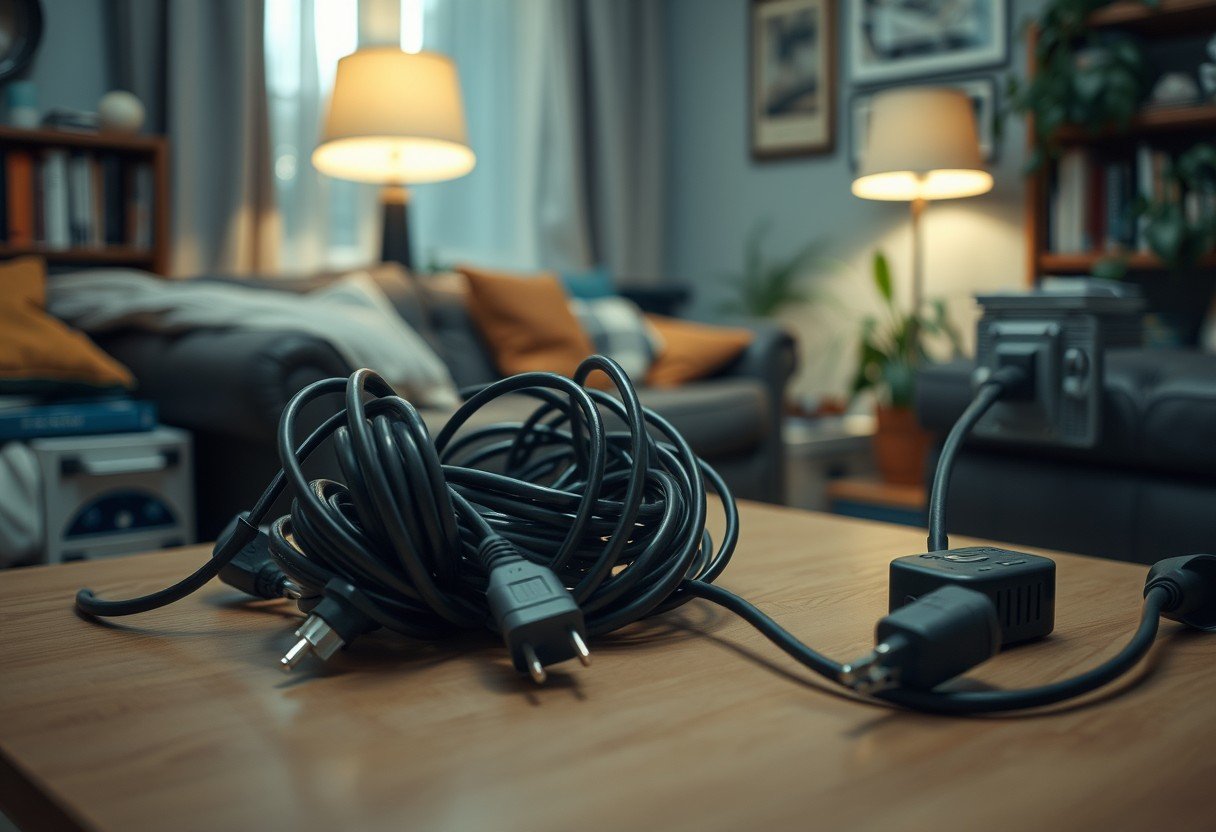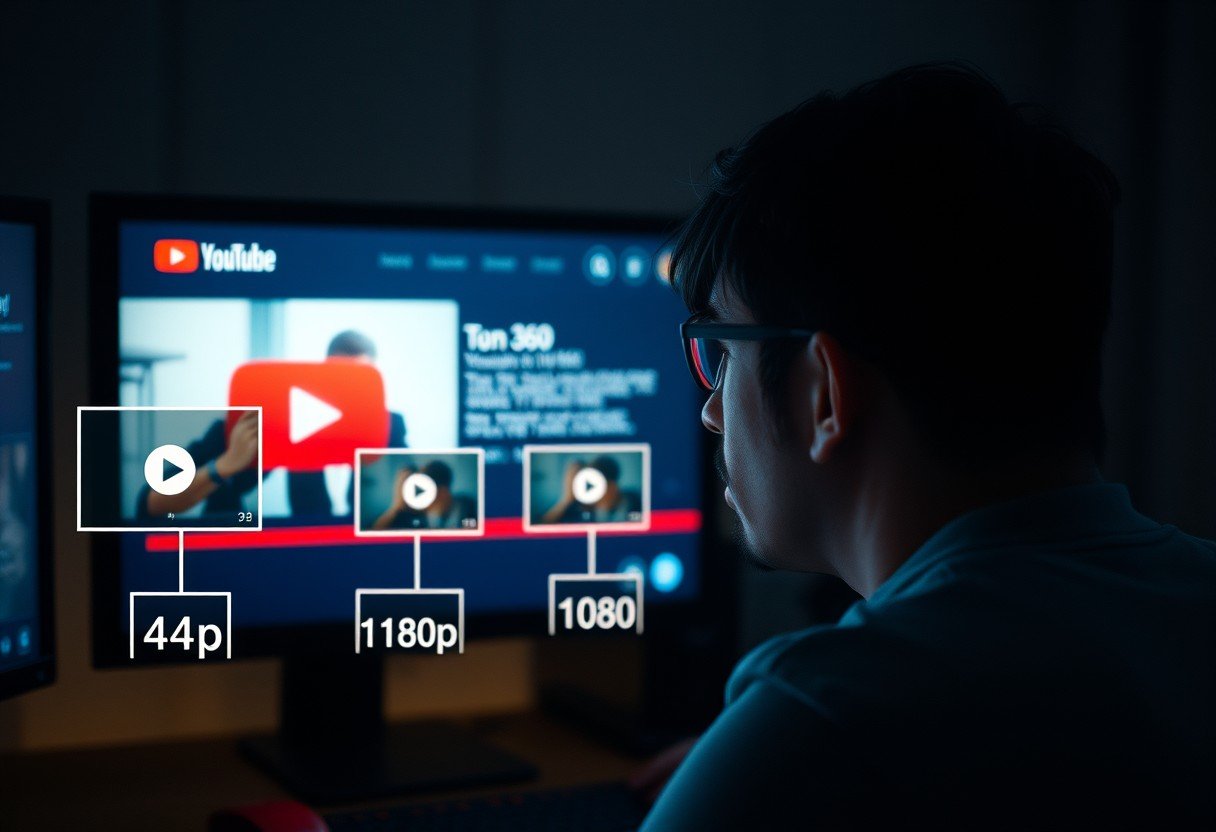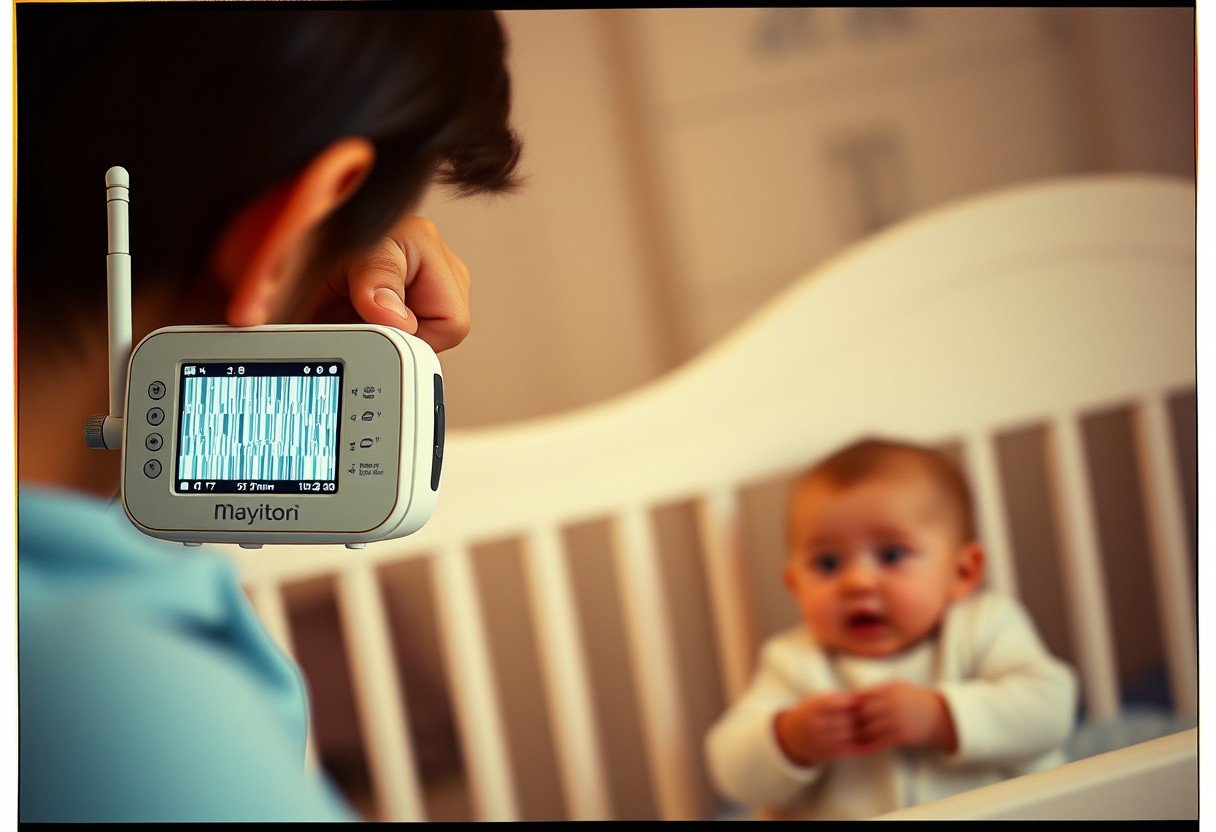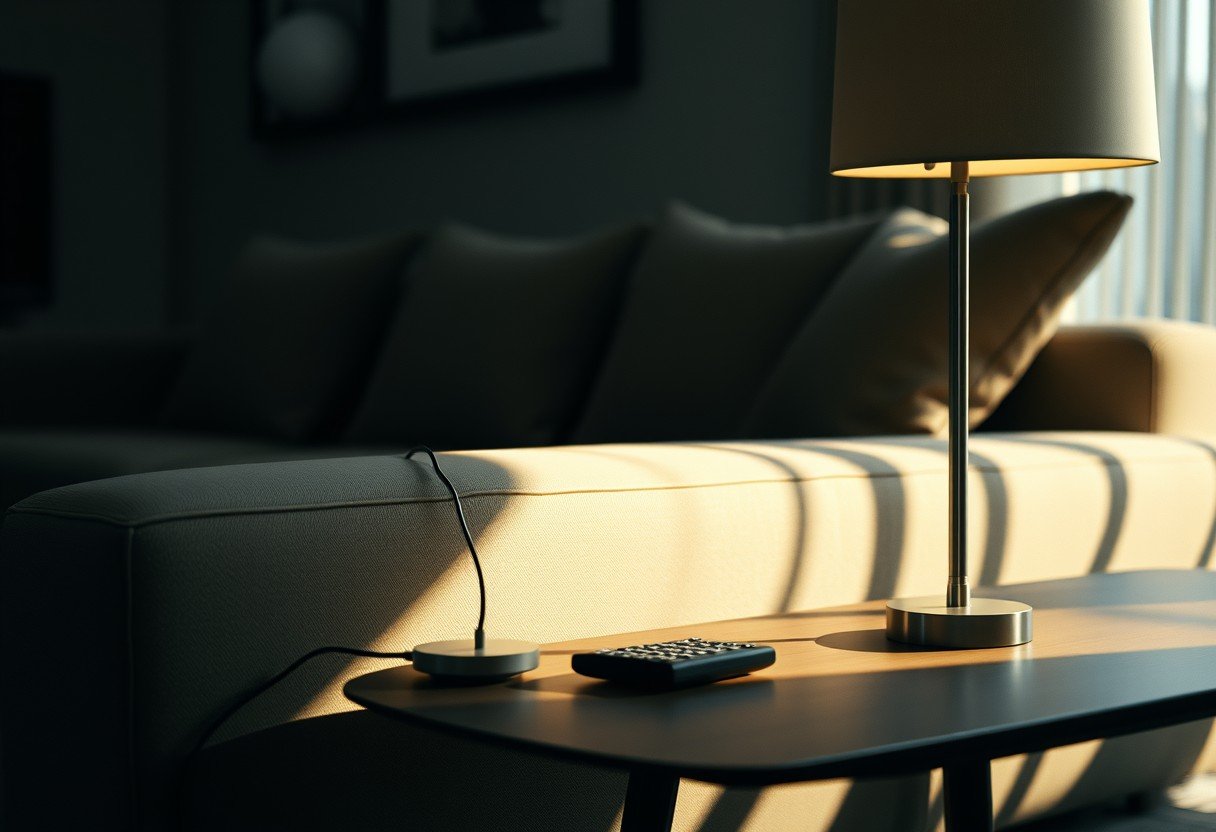Many people leave extension cords plugged into the wall, even when no devices are connected. While convenient, this common habit introduces hidden risks and wastes energy. Understanding why you should unplug extension cords can protect your home from electrical fires, save you money on your utility bills, and even help your electronics last longer. It’s a simple change that makes a big difference in household safety and efficiency.
The Hidden Dangers of a Plugged-In Extension Cord
You might not think twice about an empty extension cord plugged into an outlet, but it can be a significant safety risk. Even without a device attached, the cord is still energized, creating a potential fire hazard.
Over time, cords can become damaged, frayed, or pinched by furniture. When a damaged cord is left plugged in, it can overheat and ignite nearby materials like carpets or curtains. According to the U.S. Consumer Product Safety Commission, extension cords are responsible for thousands of residential fires each year, leading to injuries and property damage.
Another major risk is electrical surges. These sudden spikes in voltage can happen during thunderstorms or due to fluctuations in the power grid. A surge can travel through a plugged-in extension cord and destroy any electronics connected to it, even if they are turned off. Unplugging the cord completely disconnects it from the grid, offering the best protection for your valuable devices.
Why Unplugging Cords is Good for Your Wallet and the Planet
Did you know that many electronics continue to draw power even when they are switched off? This phenomenon is known as “phantom load” or “vampire power.” When you leave an extension cord plugged in, any device connected to it can contribute to this silent energy drain.
This wasted energy might seem small for a single device, but it adds up significantly across all the appliances in your home. The U.S. Department of Energy estimates that phantom load can account for up to 10% of your household’s electricity use. By simply unplugging the extension cord, you cut off the power supply completely, eliminating this unnecessary consumption.
Making a habit of unplugging cords not only leads to noticeable savings on your monthly energy bills but also reduces your home’s overall environmental footprint. It’s a small action that contributes to greater energy conservation.
Extend the Life of Your Devices by Unplugging
Constant exposure to electrical current can cause wear and tear on your extension cords and the devices connected to them. Even minor, everyday power fluctuations can slowly degrade sensitive electronic components over time.
When you unplug an extension cord, you give both the cord and your appliances a break. This reduces the cumulative stress on internal parts, which can help prevent premature failure. Regularly disconnecting your devices from a constant power source can significantly extend their operational lifespan.
Think of it as preventative maintenance for your electronics. You protect your investments from unexpected surges and the slow damage caused by continuous power, saving you money on costly repairs or replacements in the long run.
Simple Best Practices for Using Extension Cords Safely
Using extension cords correctly is just as important as knowing when to unplug them. Following a few best practices ensures you can use these convenient tools without compromising safety. Always start by choosing the right cord for the job; a cord for a small lamp is very different from one needed for a heavy-duty power tool.
Before each use, quickly inspect the cord for any signs of damage. Look for cracks in the insulation, exposed wires, or bent plugs. A damaged cord should be discarded immediately.
Here are a few essential safety tips to keep in mind:
- Never plug an extension cord into another extension cord. This practice, known as “daisy-chaining,” can cause the cords to overheat and create a serious fire hazard.
- Do not run cords under rugs, carpets, or through walls, as this can lead to overheating or damage from foot traffic.
- Make sure the extension cord is rated to handle the wattage of the devices you are plugging into it. Overloading a cord is a primary cause of electrical fires.
Proper storage is also key. When you are finished using a cord, unplug it, coil it loosely, and store it in a dry location away from direct sunlight and extreme temperatures.
When is it Critical to Unplug Your Cords?
While it’s a good habit to always unplug cords when they’re not in use, some situations demand it. Being vigilant in these scenarios can prevent serious accidents and protect your property.
The most important time to unplug is during severe weather. If thunderstorms are in the forecast, disconnect all non-essential extension cords to safeguard your electronics from lightning-induced power surges. This is especially true for any cords used outdoors.
You should also unplug cords that won’t be used for a long time, such as when you go on vacation or are storing seasonal items like holiday lights or space heaters. Leaving them plugged in provides no benefit and only introduces unnecessary risks of electrical fires or surges while you are away.
Smarter Alternatives to Using Extension Cords
Over-relying on extension cords can create clutter and persistent safety issues. For a more permanent and safer solution, consider alternatives that better suit your power needs.
If you consistently find yourself needing more outlets in a specific area, the best option is to hire a certified electrician to install new ones. Permanent wiring is the safest way to power your devices and is designed to handle your home’s electrical load without the risks associated with temporary cords. For managing multiple devices in one spot, power strips and smart plugs are excellent alternatives.
| Feature | Extension Cord | Power Strip / Smart Plug |
| Primary Use | Extending reach to an outlet | Expanding the number of outlets |
| Surge Protection | Typically none | Often included, protecting devices |
| Extra Features | None | On/off switches, timers, remote control (smart plugs) |
Power strips often include built-in surge protectors, which add a crucial layer of safety. Smart plugs offer even more control, allowing you to turn devices on and off remotely and monitor energy usage from your phone.
Frequently Asked Questions about Extension Cords
Is it okay to leave an extension cord plugged in without anything attached?
No, it is not recommended. An empty but plugged-in cord still carries a live electrical current, making it a potential fire risk if it becomes damaged or overheats. It also needlessly consumes a small amount of energy.
Do extension cords use electricity when nothing is plugged into them?
A standard extension cord does not use a measurable amount of electricity on its own. However, cords with indicator lights or other features will draw a tiny amount of power, contributing to phantom load over time.
Can I use an extension cord with a large appliance like a refrigerator?
It is strongly advised not to. Large appliances should be plugged directly into a wall outlet. If you must use a cord, it needs to be a heavy-duty, appliance-grade extension cord rated for the amperage of the refrigerator.
What is the difference between an indoor and outdoor extension cord?
Outdoor extension cords are built with more durable insulation to withstand moisture, temperature changes, and sunlight. Never use an indoor-rated cord for outdoor tasks, as it can quickly degrade and become a shock or fire hazard.
How often should I replace my extension cords?
There is no set lifespan, but you should inspect your cords regularly for damage. Replace any cord that has frayed wires, cracked insulation, or a loose-fitting plug, regardless of its age.








Leave a Comment